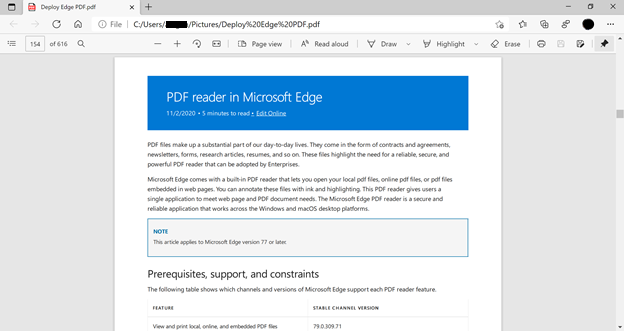

Out of the box, Windows 10 will set the contents of the UserChoice subkey to have the Progid value point to Microsoft Edge, referenced by its Windows application ID. PDF file extension at HKEY_CURRENT_USER\SOFTWARE\Microsoft\Windows\CurrentVersion\Explorer\FileExts\.pdf. Let’s use Regedit to look at the registry entries for the. Unfortunately, the workaround for Windows 8/Server 2012 R2 described in the post does not seem to work in Windows 10. The contents of the UserChoice subkey are protected from modification by a Deny permission applied to the current user’s account. To quickly summarize, since Windows 7, Microsoft has added a new registry subkey, named “UserChoice”, to certain file extensions under HKEY_CURRENT_USER\SOFTWARE\Microsoft\Windows\CurrentVersion\Explorer\FileExts, and the contents of the UserChoice subkey dictate the default application for opening the file type.
Set pdf default in windows 10 windows 8#
I’m not altogether sold on this as a way of protecting user choice, as it seems more like it’s trying to force users into using the application of Microsoft’s choice rather than the one the user has installed.Ī good technical explanation of the changes to the registry employed by Windows 8 and later to protect certain file extensions can be found in this post. This discovery led to much investigation about the changes in Windows 10 that are purportedly intended to protect a user’s choice of applications. PDF file extension, even though we had configured Acrobat to be the default handler through the Adobe Customization Wizard. Among the first things we noticed was that in Windows 10, Microsoft Edge remained the default handler for the. Recently, I’ve been working on migrating our Adobe Acrobat XI package from Windows 7 to Windows 10. However, Windows 10 has made a significant change to the way applications are able to set themselves as the default application for handling certain file types. Happily, many of the lessons learned with Windows 7 are directly applicable to Windows 10. I have been working on some unattended installation scripts for applications to be deployed through an SCCM OSD task sequence that builds our Windows 10 workstations.


 0 kommentar(er)
0 kommentar(er)
